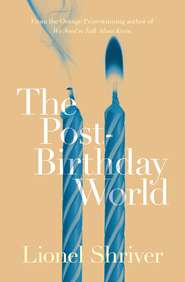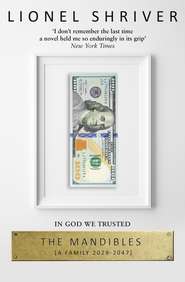По всем вопросам обращайтесь на: info@litportal.ru
(©) 2003-2024.
✖
Checker and the Derailleurs
Автор
Год написания книги
2018
Настройки чтения
Размер шрифта
Высота строк
Поля
“That’s right, Howard,” said Checker, watching intently as the very last disk of sun slipped behind the Empire State Building. “Not a bit.”
Eaton was convinced he came down to the river out of almost chemical perversity. How disgusted can a person get without spontaneously combusting? Evenly clustered along the rail like the trees in Ralph DeMarco, boys shivered because back home they looked better in the mirror in open jackets, the girls this year huddled in those horrific square sweaters and squat little pedal pushers, the strip of their exposed ankles red from cold. Block after block, the posed slouches and raised hoods, carburetors polished like candelabra for anniversary dinners—it was all so trite Eaton could cry. Why, this strip couldn’t have changed since 1955. These kids must take Teenager Lessons, the way they used to take Cotillion. Sit-on-your-car. Toss-your-hair-from-your-face. Above all, try not to look self-conscious. These guys had read up. The whole parade was so obscenely obedient, even stiff, that it could have been an audition for a marching band.
Yet from half a mile away a single face caught the last ray of the setting sun and went gold. It shone at the end of the strip like a burn hole. From that point the plastic flatness of this canvas shrank back, as from a lit cigarette poked through cellophane. Clumps on hoods flowered open and cliques on the rail did flips, balanced on their hipbones, skipped rocks on the river, twisted to old Rolling Stones songs. Eaton knew only that he was surrounded by many children playing. And he looked down the row knowing very well that nothing had changed.
Five ninety-five for a turkey sandwich,” said Brinkley. “Like, this place thinks it’s a restaurant.”
While they ritually mocked the diner’s naïve attempts at haute cuisine, snickering at the awkward murals with statuary and Corinthian columns, for some reason Eaton could hear only how often Brinkley said the word “like,” Gilbert said “you know,” and Rad said “I mean.” Soon Eaton had lost track of what they were talking about altogether, for he could discern only a horrifying repetition of verbal tics that was slowly driving him insane.
“Eat wasted Secretti last night. I mean, compared to Eat, Checkie’s like puh, puh, puh—”
Suddenly Eaton blanched. He coughed and rolled his eyes, but no, these doorknobs didn’t get the message; the man in the entranceway turned his head to their table when he heard his own name. When their eyes met, Eaton was once more afraid, as he’d been the night before, of discovery. Nodding weakly, he shoveled a forkful of shrimp salad and looked back to Brinkley with an absorption the boy never deserved. Eaton’s hands were clammy and he no longer had an appetite. When his friends had finally noticed The Derailleurs at the big round table and had therefore switched into their seeming-to-have-a-good-time mode, Eaton found their cries for more beer and their leering after the waitress embarrassing. Abruptly he stood up, said he needed to say hello to someone, and walked away.
“Well, la-di-da,” said Brinkley, seeing where Eaton was headed. “Eat’s got himself new little friends.” For some reason it never bothered Brinkley when his emotions were transparent.
“Careful. Pond scum,” Rahim warned.
“Evening.” Eaton nodded. “Come here often?” Feebly, he resorted to an old pickup line.
“Yes,” said Checker. “We love the murals. They’re so—innocent.”
“They’re ugly,” said Eaton automatically.
“Why would you want to look at them like that?”
“I enjoy hating them.”
Checker laughed. “So you must come here often, too. For the murals.” Fondly he reached for the saltcellar and stroked up and down its facets, cleaning off fingerprints. Waves of hot and cold crossed Eaton in ripples; the hair raised on his arms. Each object Checker reached for seemed to glow. “I like their saltshakers,” said Check. “I like their napkin holders with the rounded sides. I like their waitresses and their garnishes and their slaw, and the little diamond shapes in the floor. And after thorough research the band has concluded they have the best home fries in all of Astoria.” Check looked up; Eaton stepped back.
“Is there anything you don’t like?”
“You.”
“Hijack,” said Checker.
“Why the bandage?” asked Eaton, ignoring Rahim.
“My hand fell in love with a piece of glass,” Check explained. “It was a destructive relationship.”
“So you can’t play tonight? I mean, was it serious?”
“Pain is always serious, that’s what makes it exciting.”
“You mean you enjoyed cutting your hand?”
Checker pulled at his bandage, looking inside at the cut with contemplation. “Well, yes.”
“There are words for people like that.”
Checker smiled. “I like blood. I like the color.”
“You also into animal sacrifice?”
Checker laughed. “Pull up a chair.”
With a flicker of hesitation, Eaton did so, but when he tried to intrude between Checker and Rahim, the Iraqi wouldn’t move over. Checker eyed the saxophonist until Rahim finally screeched aside, though only far enough for Eaton’s chair to jam tight between them. Eaton was forced to climb into his seat with just the kind of awkwardness he particularly detested.
“We need a backup drummer,” said Checker. “You game?”
Eaton’s face flushed, whether from insult or flattery it was impossible to tell. “To calm the belligerent fans when the star has a headache?”
“Something like that …” said Check, looking Eaton up and down like a new amp, searching for the plug. “What you did last night. You were—challenging.”
“He was poison.”
Eaton turned on Rahim. “Where are you from that they insult people for no reason who are about to do you a favor?”
Rahim said nothing more, only sat looking calm, almost pleasant.
“Iraq,” said Checker. “Where they have lots of funny feelings.”
“I see. And you’re in our country visiting?”
Rahim remained quiet.
“He doesn’t understand your question,” said Checker.
“I mean, you’re not a citizen, isn’t that right? This is the way you act as a guest.”
“Hijack lives here,” said Checker.
“Yes. But under what auspices?—I assume I can use ‘auspices,’ since he seems to have a translator.”
“No,” said Check, though Eaton had continued to look only at Rahim. “The translator doesn’t know an auspice from a hole in the ground.”
“He means—” Howard began.
“I mean,” Eaton interrupted, “he’s wet, isn’t he? From head to toe.”
The band squirmed. No one answered.
“Come on,” said Eaton. “I’m in the band now.” Eaton smiled.
“See,” said Rahim.
It happened the next weekend, and was over in surprisingly short order, though that is the nature of most events—with a few gory exceptions, murders are over in seconds; the most hurtful remarks often use the fewest words; neither falling off a cliff nor running a car into a telephone pole is a lengthy enough process to require scheduling into your day.
The band hadn’t taken the man seriously at first when he clumped over to The Derailleurs on their break—with the big biker boots and shredded T and bright pink bandanna knotted at his neck; why, the costume wasn’t even coherent. At the flap of his ID, they resettled in their chairs and time got very fat. The whole table was suspended in the interface between two alternate universes. Change is like that: you are no longer where you were; you are not yet where you will get; you are nowhere exactly.











